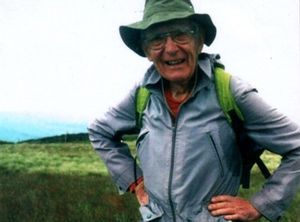Difference between revisions of "John Arundel Barnes"
WikiadminBot (talk | contribs) (Bot: Automated import of articles *** existing text overwritten ***) |
WikiadminBot (talk | contribs) (Bot: Automated import of articles *** existing text overwritten ***) |
||
| Line 1: | Line 1: | ||
| − | |||
{{Infobox rai-fellow | {{Infobox rai-fellow | ||
| first_name = John Arundel | | first_name = John Arundel | ||
Latest revision as of 06:03, 22 January 2021
Contents
Notes
Office Notes
House Notes
1942.10.27 nominated and elected forthwith as Ordinary Fellow of the Institute; ... election to take effect as from Nov. 24, subject to the approval of the Executive Committee
1950 Wellcome medal. Marriage in a changing society: a study in structural change among the Fort Jameson Ngoni. - Rhodes-Livingstone Institute (Rhodes-Livingstone Papers; 20);
1959 Rivers Memorial Medal
occupation on census: sailor
Notes From Elsewhere
John Arundel Barnes M.A. D.Phil. DSC FBA (September 9, 1918 – September 13, 2010) was an Australian and British social anthropologist. Until his death in 2010, Barnes held the post of Emeritus Professor of Sociology, Fellow of Churchill College. From 1969 to 1982, he held the post of Professor of Sociology at the University of Cambridge. Previous positions include faculty posts in social anthropology at the University of Sydney and the Australian National University in Canberra, He also was associated with Academy of the Social Sciences in Australia, University College London, St John's College, Cambridge, Balliol College, Oxford and the Rhodes-Livingstone Institute. Barnes was a student of Max Gluckman in the Manchester School.
John A. Barnes, among others, is known to be the first to use the concept of social networks in a scientific context. This was in 1954, in the article "Class and Committees in a Norwegian Island Parish",[1] in which he presented the result of nearly two years of fieldwork in Bremnes on Bømlo, Norway. His anthropological studies ranged from New Guinea to Norway. His interests and writings extended across the social and political sciences and beyond.
Publications
External Publications
The frequency of divorce (1964)
Three Styles in the Study of Kinship (1971) Marriage in a Changing Society (1951)
Models and interpretations Politics in a changing society: A political history of Fort Jameson Ngoni (1954)
The Ethics of Inquiry in Social Science: Three Lectures (1977)
Sociology in Cambridge (1970)
A Pack of Lies: Towards a Sociology of Lying (1994)
Who Should Know What? Social Science, Privacy, and Ethics (1979)
Kinship Studies: Some Impressions of the Current State of Play Anthropology after Freud Social Networks (1972)
Inquest on the Murngin (1967) (Royal Anthropological Institute. Occasional papers,no.26)
African models in the New Guinea Highlands (1962)
Humping on my drum (autobiography)
House Publications
Related Material Details
RAI Material
census
MS 189 Wellcome
